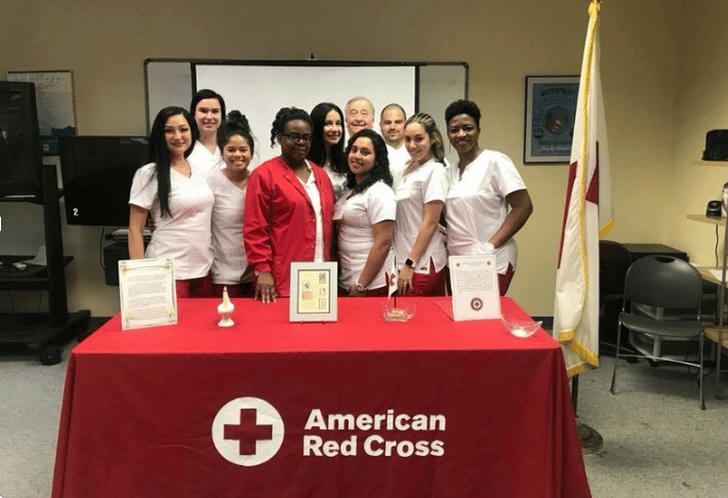Transform Your Life in Four Weeks: Free CNA Course for a Rewarding Career in Caregiving
The U.S. healthcare sector faces a rising demand for professionals due to an aging population, especially for Certified Nursing Assistants (CNAs), where job prospects are highly promising. According to the Bureau of Labor Statistics, CNA roles are expected to grow by 8% by 2031, surpassing many other fields. With CNA certification, nursing assistants can find flexible job opportunities in hospitals, nursing homes, rehabilitation centers, and private homes.

In the U.S., four-week CNA certification programs are widely popular, particularly in high-demand states like California, New York, Florida, and Texas. Mary is a success story in this field. As a single mother, she transitioned from a low-paying service job to healthcare by enrolling in a free, four-week CNA program offered by a local nursing home. Through both theoretical and practical training, she passed her CNA certification exam and secured a full-time position with significantly improved income and benefits.
· Types of Organizations Offering Four-Week CNA Courses
Nursing Homes and Long-Term Care Facilities
Many nursing homes and long-term care facilities provide CNA courses that last around 4-6 weeks and include certification testing. Large organizations like Genesis Healthcare and Brookdale Senior Living offer fast-track training programs for employees who plan to stay long-term, often with direct job placements after certification
American Red Cross Chapters
In some states, local Red Cross chapters provide four-week CNA training, covering both theory and practical skills. Graduates of these programs are eligible for CNA certification. Many programs offer financial aid, especially for low-income or unemployed individuals to help cover tuition costs.
Workforce Training Centers and State Employment Centers
Workforce training centers and state labor departments offer four-week CNA certification courses, often funded through WIOA (Workforce Innovation and Opportunity Act) programs. These intensive courses include clinical practice and are geared toward preparing students for the certification exam.
Community and Technical Colleges
Some community and technical colleges provide accelerated CNA programs, partnering with local hospitals and nursing homes to offer 4-6 weeks of comprehensive training. In states like New York and California, these programs cover both classroom learning and hands-on practice. Upon certification, students are often recommended to partner institutions for employment.
CNA Course Training Content and Benefits
CNA courses are designed for intensive short-term training, covering topics like basic caregiving, daily patient care, emergency response, and communication skills. Programs also include clinical practice where students gain experience under supervision in real healthcare settings. The four-week program is often full-time to ensure a thorough, rapid skill acquisition for state CNA exams. In addition, CNA programs often provide various forms of support to help students succeed and smoothly transition into the workforce, including:
🟢1: Tuition Assistance and Material Support:
Many programs offer free tuition, covering books and exam fees as well.
🟢2:Internship Opportunities and Job Counseling:
Some programs arrange internships to help students build hands-on experience and offer career services for resume building, interview preparation, and more.
🟢3:Flexible Scheduling Options:
Many programs provide flexible schedules (daytime, evening, or weekend classes) to accommodate different student needs.
🟢4:Ongoing Support and Continuing Education:
Certain programs offer continuing education opportunities for graduates to further skill-building and career advancement.
Frequently Asked Questions
Q:What are the eligibility requirements?
A:Most free CNA courses require students to be at least 18 years old and hold a high school diploma or equivalent. Additionally, basic English reading and writing skills are necessary to understand course content and communicate with patients.
Q:How long is the course?
A:Most free CNA courses last four weeks. Courses are intensive, often full-time, to ensure students acquire the necessary skills in a short timeframe.
Q:Does the program provide job support?
A:Yes, many CNA programs partner with hospitals, nursing homes, or rehab centers, providing job support. Graduates are often given priority in job referrals and interviews.
Q:Are there any additional fees?
A:The course is typically free, though some programs may charge a small fee for books or exams. Fees vary depending on the program and state regulations; it’s recommended to check with the course provider.
Q:How difficult is the certification exam?
A:CNA courses include both theoretical knowledge and practical training to prepare students comprehensively for the exam. Clinical practice in real caregiving environments enhances exam readiness and confidence.
Q:Are additional tutoring services available if I encounter difficulties?
A:Yes, many programs offer support systems such as tutoring from instructors and peer study groups to help students overcome challenges in learning.
Q:What are the career opportunities after completing the course?
A:With CNA certification, you can work in nursing homes, hospitals, rehab centers, or private residences. Many CNAs choose to continue their education and pursue an LPN or RN career, advancing within the healthcare field.
CNA training is not only a gateway to the healthcare industry but also a solid foundation for career growth. If you're looking for a stable, growing field with the chance to achieve financial independence, a CNA program could be the perfect first step. Join the caregiving profession and start building a brighter future today!
